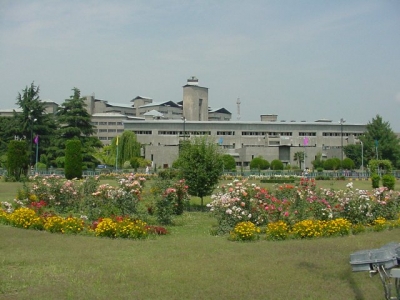Irtif Lone
While India is bracing up to the challenge of 7- phase parliamentary elections, it looks like a mere formality. The media has already created a hullabaloo by almost declaring that the Gujarat Chief minister will become the next Prime Minister. And the ruling party has almost accepted the defeat on the larger front long before the elections. This is the bigger picture. There is another story, a smaller one though, considering the geographical dimensions and the number of MPs and the effect it has on the larger picture of the Indian parliament. Kashmir would be sending a smaller number of 6 representatives in total, which is a very small number comparing to what is needed to form the government.
But, Kashmir plays a different role for India. One, the number of votes which are casted help the Indian state put forward a case of active participation by the population in the democratic process, hence, the integral part. In the international forums, it is played as the normalisation of the situation and no major dissent among the people, who are happy to send their representative to the Indian parliament. Well, that’s the part of Kashmir being a conflict. As such, Kashmir is also the only Muslim majority state, in the whole union. It also helps India in portraying itself as a secular state.
In Kashmir, these parliamentary elections don’t make much sense to the people except for those who are active part of the main stream, and have aspirations of forming the government or be the part in Delhi. For the people of Kashmir, it is nothing exciting. The MP’s who are sent to the parliament are usually mute spectators to the happenings inside and outside the house, as if they were there to be the observers. The last time it was the junior Abdullah who made an emotional speech which made him famous among Indian Muslims, even then there was nothing for Kashmir in it. Since then there was not any speeches worth listening to or one could relate to.
These, so called representatives have failed in fulfilling the aspirations of people. And among the major failures of these representatives was execution of Afzal Guroo. If the capital punishment of Rajiv Gandhi’s killers can be dropped, why not of Afzal? And the way it happened was like rubbing salt on the wounds. They were the mute spectators, enjoying their participation on prime time shows of news channels. Same happened with AFSPA, they never tried to put through the point. Or even make a strong argument.
Considering the political implications of these two failures, realising that every time, because they belong to Kashmir, have to prove their credentials as Indian patriots one might still think of giving them the benefit of doubt. But, what does the report card say on the other fronts, like that of Autonomy? What about the hydro-power projects? Has there been any forward moment? Have they even tried to put across the points?
This time around, Kashmir has many new emerged leaders and parties else than the traditional ones of National Conference, Congress, PDP, like those of Aam Aadmi Party and Awami Itehad, but then what difference would it make. They anyways, would be cut to size once in Delhi. The hunger for power never satiates. These politicians have taken seriously the proverb, “In Rome, do as Romans do”. So, once in Delhi they will do what other politicians from other states or probably Delhi do.















